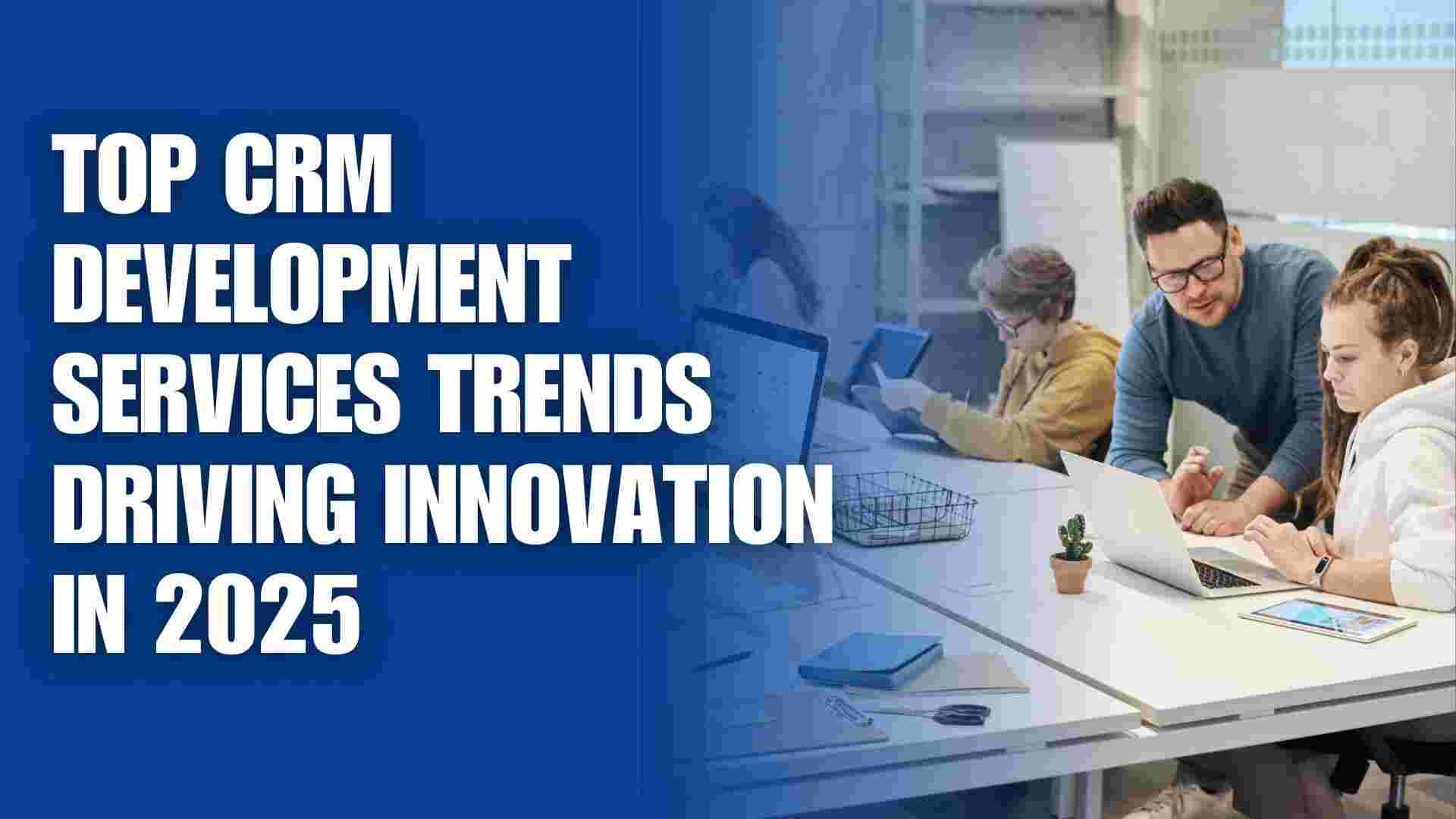


In 2025, CRM development services use AI, cloud, and analytics to enhance customer engagement, boost efficiency, and drive business growth.
Customer Relationship Management (CRM) has evolved far beyond simple contact management. In 2025, CRM development services are shaping the way organizations connect with customers, streamline their operations, and capitalize on growth opportunities. With emerging technologies, customer expectations, and global competition influencing strategies, businesses are increasingly relying on innovative CRM systems to stay ahead. Let’s explore the key trends transforming CRM in 2025 and how they are redefining customer engagement and business efficiency.
One of the most significant advancements in CRM development services is the integration of artificial intelligence. AI algorithms can analyze massive datasets to predict customer needs, suggest personalized recommendations, and optimize interactions in real-time. For example, an e-commerce brand using a custom CRM solution can automatically identify a customer’s buying patterns and offer targeted promotions. AI also helps in scoring leads, automating workflows, and improving forecasting accuracy, turning CRMs into intelligent business assistants.
As we look ahead to 2025, it is clear that CRM development companies are investing heavily in cloud-based CRM solutions. The days of businesses being confined to external systems are over; businesses require fast and deterministic speed-to-market solutions that integrate with other technologies, can be scaled quickly, and allow data to be accessed from anywhere, anytime.
Today’s customers expect consistent and connected experiences across email, social media, chat, and phone. Modern CRM development services are integrating omnichannel communication tools directly into platforms, ensuring that every interaction is tracked and accessible in one place. Custom CRM development ensures that each channel works together — for example, a customer can start a conversation on social media and continue it over email without repeating information. This unified approach strengthens relationships and builds trust.
As companies need more rapid deployment, the CRM development companies are introducing low-code and no-code tools that allow less experienced users to configure systems without needing to know heavy coding. This idea is especially valuable in creating custom CRM solutions with unique workflows, and companies can add many new features, automate, and create dashboards with no wait time for a development cycle.
Data is the backbone of customer strategy, and CRM development services are increasingly integrating advanced analytics and BI tools. These integrations enable companies to track KPIs, measure campaign performance, and make data-driven decisions instantly. By linking CRM software with analytics platforms, businesses can identify sales trends, track customer lifetime value, and optimize marketing efforts.
Due to the fast-paced working environment of sales teams, organizations are increasingly looking for mobile-friendly CRM systems. The best CRM software includes fully functional mobile apps that allow its sales team to update records, access information, and manage leads while on the go. This mobile-first approach is not only convenient, but it also means that customer enquiries can be addressed that much faster.
Generic solutions no longer cut it for many organizations. Custom CRM development tailored to specific industries — such as healthcare, real estate, or finance — is a growing trend in 2025. A CRM development company like Jellyfish Technologies can design features that address niche requirements, regulatory needs, and specialized workflows, ensuring maximum efficiency and compliance.
As data protection laws become more stringent globally, the development of CRM software is starting to accommodate protective features like encryption, multifactor authentication, compliance audit trails, etc. For businesses handling sensitive customer data, having custom CRM solutions with built-in security protocols is essential for both trust and legal compliance.
Another growing trend in CRM development services is voice integration and voice-enabled systems with conversational AI. Now sales reps can update data, set meetings, or recall customer information all through voice recognition. Hands-free functionality is a productivity booster and simplifies accessibility to the CRM system.
In 2025, even CRM software is going green. Businesses are seeking energy-efficient, cloud-hosted platforms that minimize environmental impact. CRM development companies are optimizing infrastructure to reduce carbon footprints while still delivering high performance.
The advancement of CRM development services supports businesses to engage customers better, improve efficiency, and gain a competitive advantage in market environments. These trends reflect how organizations are utilizing technology to manage their relationships in a changing environment. Whether you are a small business navigating the best CRM software or an enterprise organization that requires custom CRM development, following these trends will keep your CRM strategy current and future-proof.
